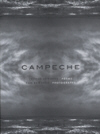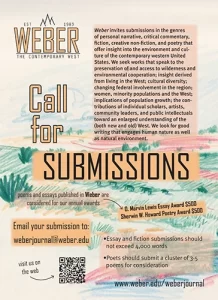Campeche
Joshua Edwards and Van Edwards’ Campeche, an ekphrastic collection of poems and photographs, meditates on the self as a song caught within the larger music of the world in decline. The book has a unique architecture, which derives its structure from both its historical setting and subtle references to ancient Greek and Judeo-Christian apocrypha. Arranged in seven sections, and consisting of thirty poems (three of which are translations) and forty photographs, the book launches its lyrical flights over Galveston Island, grounding symbolic expression in a real place already imbued with intrigue—the 18th century pirate Jean Lafitte, a man without a nation-state to call home, named this island “Campeche.”
Joshua Edwards and Van Edwards’ Campeche, an ekphrastic collection of poems and photographs, meditates on the self as a song caught within the larger music of the world in decline. The book has a unique architecture, which derives its structure from both its historical setting and subtle references to ancient Greek and Judeo-Christian apocrypha. Arranged in seven sections, and consisting of thirty poems (three of which are translations) and forty photographs, the book launches its lyrical flights over Galveston Island, grounding symbolic expression in a real place already imbued with intrigue—the 18th century pirate Jean Lafitte, a man without a nation-state to call home, named this island “Campeche.”
And the book also frames its contents within the story of Prometheus’ son Deucalion, who had been warned by his father of a great flood that would wash away the known world. From here, Joshua and Van Edwards look out to sea and look inland. They scan the thin, distant line stretched between water and sky, as Lafitte had, for vessels to appear and carry a glint of light for a moment or two before “the horizon / destroys itself as I replicate a fist again and / again and again in the palm of my hand.”
Realizing that the self is also subject to entropy’s deluges, these poems and photographs register both futility and hope, a sort of horizontal or material dread buttressed by the vertical or spiritual lift of wonderment. Poem after photograph after poem, Campeche turns over sublime images, collecting evidence of the self’s interplay among earth, sky, and spirit, and then it builds a case out of them. Joshua Edwards has a knack for correlating complex ideas with compelling imagery. Working within the wide parameters of Lafitte’s legendary island, the Deucalion myth, and his father’s photographs, he writes from personal experience while muting personality enough to invite his readers into the poems.
In the book’s first section, “Deucalion,” the speaker triangulates between photographs of decay and growth, and the Greek version of the great flood myth. Reflecting upon the seascape along the island, his imagination mediates the real sky, sea, and land. And his utterances, filled with personal symbol, sing a song of the self fully aware of mortality; and this song knows all too well that the world itself will also reach its terminus. Consider these lines from “Vapors”:
…Fangs grow
from those stars. Day after day, the sea spits
up at the sky, always from new mouths,
and sometimes a cloud obscures the moon
just as two people step out onto a balcony.
And these gorgeous lines from the next poem, “Cold Green”:
…I have found
these things in song: a bird too tired to fly,
secrets of pronunciation, a defeated harvest,
an old refrigerator full of architectural plans.
The section’s last poem “Farewell” focuses the remainder of the book, which not only comes to terms with the world’s dissolution, but embraces it: “I organize life with old ideas, in silence, / and with a cosmic sense of nature failing / I set off into southern wilderness to seek / some subtle center.”
“Life Studies,” the following section, contains only Van Edwards’ photographs of Galveston. The photos outline the book’s phenomenology: strange birds, bird nests, human-made structures, two dead rabbits in separate phases of decay, a close-up of an elephant’s eye, taxidermy mounted on a wall, and beachgoers interacting with the Port of Galveston’s mascot, “The Friendly Seagull.” These photos not only locate the speaker’s “subtle center,” but they also connect with the next section “Campeche,” in which the speaker, perhaps channeling Lefitte, defines the contours of his perspective:
When clocks chime, I groan.
The falling world finds pleasure in despair
Because to suffer means to be alone,
And I suffer through all the accidents
Of change as though I were settling a score,
As if to disinvent what death invents.
I once built a castle, now I do chores.
To pass the time I rearrange my things.
To fall asleep I recite the names of kings.
“I plan a leave of absence,” the speaker says in “Drift,” “I have seen footage / Of violent waves bearing down on man / Outside his very door. Lives come apart / Like books when they get wet.” The last line’s statement “Departure starts my voyage” reiterates the kinetic and transformative power of severe weather. Mimetic of this theme, the last two poems in this section, “Song” and “Vanishing Island” signal a break in form. Interestingly, each of the book’s previous poems had been composed in single blocks without stanzas. The remaining poems depart (“come apart”) from the initial form, have been organized into tercets, quatrains or drop-lines, and drift in white space. While subtle, this shift does not seem accidental, and it indicates Joshua Edwards’s careful attention to form across the length of his book.
“Two Old Bouquets,” the book’s fourth section, gives the reader two long poems in quatrains addressing nature’s destructive power and humanity’s efforts to keep it back. Metaphorically, the poems contemplate how the larger forces of nature, specifically the obliterating sea, not only wear away the land, but also the self. “Love of air and water / Joined in apprehension, / Perhaps you know what’s there / By way of fear,” the speaker of “Leviathan” begins. “Noah had seven laws, / You have only one—eat / To build life out of death, / Survive above all things.” In “Sea Wall,” the speaker describes the dialectic between the islanders’ work to maintain a boundary between themselves and the storm-driven waves that work to break through. After a hurricane smashed over the shoreline “Early last century, / Elegant architects / Walking through the rubble / Sadly took account of // The stricken city that / Papers said lay prostrate / Under catastrophe.” After rebuilding, these workers erected a seawall “Against the water’s teeth,” and the islanders spent “Important afternoons / Of dazzling bodies” to put up a “memorial to / Protect against and taunt / The ocean’s forceful art.” These two poems read as microcosms of civilization’s endeavoring to maintain order, to shore against the forces of nature with human systems and forces of our own.
The fifth section, “Three Translations,” offers Joshua Edwards’s translations of spare, imagistic four-line poems by Meng Haoran, Luo Binwang, and Liu Zongyuan, respectively. This section works as a sort of thematic interstice between “Two Old Bouquets” and the book’s last two sections “Diptych” and “Anxiety Sutra.” In these two sections, the speaker locates his self within American history, within the traditions, customs and symbols of democratic ideals that have shaped his identity. “United Stations” places the speaker “on a hotel room balcony” during his honeymoon, while his “bride, inside, is showering.” Looking toward the sea, he has what Freud terms an oceanic experience, a momentary connection with the infinite, in which the tensions between civilization’s demands and the desire for personal freedom dissolve. And yet his feeling of wholeness is complicated by thought. He daydreams “in classic tones / Of far-off places you’ve never been, women you’ll never know, / and the heroic triumph of love over the worldly call / Of adventure.” We get the sense that the speaker’s poetic intelligence—so mindful that the imagining self creates art and artifice alike—won’t give him the moment’s peace. Toward the end of the poem he muses: “The Arch in St. Louis was started in 1963, / Christened in 1965, as a testament to how we / Love to liberate ourselves and then quickly construct fences / To keep what’s ours in.”





